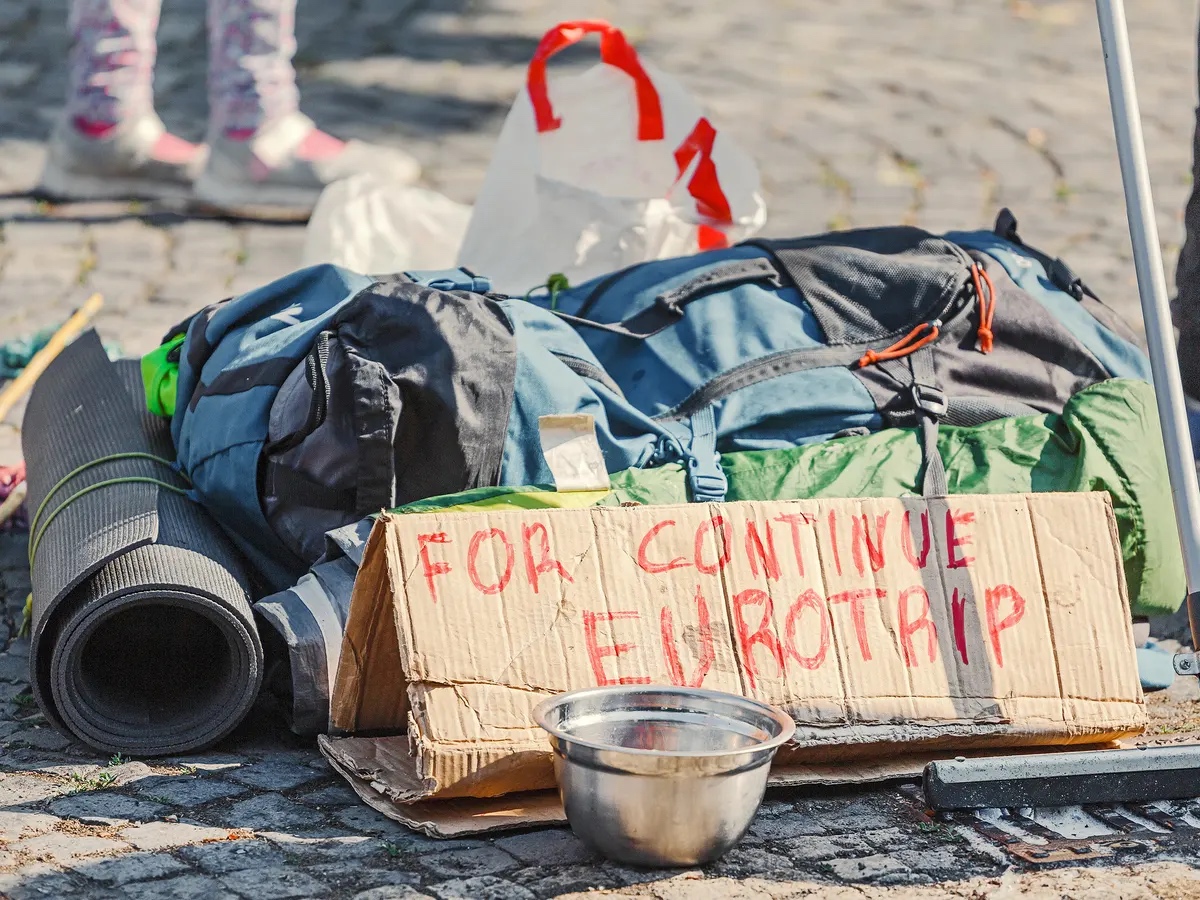
"Begpacking" — a portmanteau of "begging" and "backpacking" — refers to the widely unpopular practice of tourists soliciting money from the public to fund their travels. Having become an all too common sight on the streets of Asia, the legal and ethical implications of their actions have forced a change of tact...
The world's 'most hated' tourist is a hotly contested category: from naked influencers defiling sacred spots in Bali and British drunkards being kicked out of Amsterdam, to a business class flyer urinating all over his cabin and the fellow passengers therein, people clearly have a hard time keeping the peace while travelling abroad. In recent months, however, one group in particular has drawn a great deal of fire from the wider public...
Causing uproar in metropolitan Asian hotspots across Singapore, Thailand, India, and Indonesia, so-called "begpackers" are becoming a thoroughly disliked group. A wholly pejorative and relatively ugly portmanteau of "begging" and "backpacking", the word refers to an increasingly unpopular and divisive approach to holidaying whereby travellers sit begging on the streets in the hope that the public will fund their ongoing adventures.
Responses to the travel phenomenon have ranged wide: from the comedic efforts of someone like Ashley James who runs the 'Chaotic Hong Kong Expats' Instagram page where he uses memes to satirise begpackers — amongst a whole host of Hong Kong curiosities — to someone like Stephen Pratt, department chair of the Rosen College of Hospitality Management at the University of Central Florida, who has studied the trend much more seriously...
WATCH: Brits in Amsterdam are evidently a close second for the 'most hated' title.
Pratt categorises begpackers into three groups: buskers (performers or musicians), sellers (offering goods or services), and those who simply ask for money without providing anything in return. During his research in Hong Kong, Pratt even went undercover as a begpacker himself, armed with a ukulele and a sign asking for support. Interestingly, he discovered that most people who donated money were intrigued by his ukulele, appreciating his effort even if his playing skills weren't exactly exceptional.
While the concept of begpacking isn't entirely new, it has gained significant attention in recent years thanks to the proliferation of social media. Pratt had this to say about the renewed hatred and the financial implications therein:
“This shaming raises the point of, ‘is international travel only for a certain class of people or people over a certain amount of income?’... I think tourists themselves are being held more accountable now than in the past.”
Stephen Pratt
Defenders of begpackers, like Filipino human rights attorney Raphael Pangalangan, have cited so-called "passport privilege" as an unacknowledged cause of the widespread criticism. The term highlights the stark contrast between people with certain passports to travel quickly, widely, and easily.
For example, holders of European Union passports can freely explore their continent for as long as they like, whereas Filipinos like Pangalangan face long waits and extensive paperwork to secure travel visas before venturing abroad.
 Some begpackers sell wares, others play music, while some simply ask for the public's generosity. Image: Getty
Some begpackers sell wares, others play music, while some simply ask for the public's generosity. Image: Getty
Pangalangan argues that begpacking exposes the double standards inherent in passport privilege, revealing wider inequalities in society. Others assert that the shaming directed at begpackers stems from racial biases, with the common misconception that individuals from first-world countries are uniformly wealthy overlooking the presence of poverty in those nations, and therefore the resulting need to ask the public for help funding their movements.
Wherever you may stand on these issues, begpackers appear to be one step ahead: recognising the resistance they face on the streets, many travellers are now turning to social media and platforms like GoFundMe as a means to crowdsource travel funds, rather than risking embarrassment and pushback in public. Joshua Bernstein, a lecturer at Thamassat University in Thailand, sees this as a manifestation of a wider generational shift:
“I think it kind of represents the growing arena of location-independent tourists blurring boundaries between leisure and work [as well as] a generational shift between valuing experience over things.”
Joshua Bernstein
As discussions surrounding begpacking continue, it's clear that this controversial phenomenon raises broader questions about privilege, inequality, and the ethics of international travel. As they turn to new avenues for support, their presence will undoubtedly remain a topic of intrigue and scrutiny in a rapidly changing world. From street corners to social media, begpackers are redefining the art of funding wanderlust.
The post ‘Begpackers’ Are The World’s Most Hated Tourists… But Is The Hatred Justified? appeared first on DMARGE.
0 Commentaires